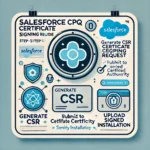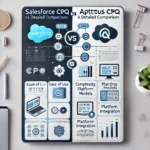Salesforce Workbench is a powerful tool for interacting with Salesforce data and metadata, but it may not always fit every user’s needs due to its interface, capabilities, or specific requirements. In this guide, we’ll explore alternative tools that offer similar functionalities, their features, use cases, and provide insights into choosing the right tool for your Salesforce administration and development tasks.
Introduction to Salesforce Workbench Alternatives
What is Salesforce Workbench?
Salesforce Workbench is a web-based tool designed for developers and administrators to interact with Salesforce organizations. It provides functionalities such as querying data, manipulating metadata, performing data loads, and executing REST API calls, among others.
Why Consider Alternatives to Salesforce Workbench?
While Salesforce Workbench is robust, users may seek alternatives for reasons including:
- User Interface Preferences: Some users prefer more modern or intuitive interfaces.
- Additional Features: Tools offering additional features like automation, scheduling, or enhanced visualization.
- Specific Use Cases: Tailored solutions for particular tasks or industries not fully addressed by Salesforce Workbench.
Key Features to Look for in Salesforce Workbench Alternatives
- Data Querying and Manipulation: Ability to query, view, and modify Salesforce data and metadata.
- API Integration: Support for Salesforce REST and SOAP APIs for seamless integration with external systems.
- Data Loading and Migration: Tools for importing/exporting data to/from Salesforce, including bulk data operations.
- Metadata Management: Tools to manage Salesforce metadata, including custom objects, fields, and permissions.
- Automation and Batch Processing: Capabilities for automating tasks and executing batch processes.
- Security and Compliance: Features ensuring data security and compliance with Salesforce governance and regulatory requirements.
Salesforce Workbench Alternatives: Overview and Comparison
1. Data Loader
- Overview: Salesforce-provided tool for importing/exporting data.
- Features: Supports bulk data operations, scheduling, and command-line interface.
- Use Cases: Ideal for straightforward data migrations and integrations.
2. MuleSoft Anypoint Platform
- Overview: Comprehensive integration platform.
- Features: API management, data transformation, and application connectivity.
- Use Cases: Suitable for complex integrations and enterprise-level data synchronization.
3. Dataloader.io
- Overview: Cloud-based data integration platform by MuleSoft.
- Features: GUI for data migration, scheduling, and automated data imports.
- Use Cases: Best for users needing a user-friendly interface and advanced scheduling capabilities.
4. Jitterbit
- Overview: Integration platform for connecting Salesforce with other applications.
- Features: Data integration, API management, and workflow automation.
- Use Cases: Suitable for integrating Salesforce with multiple systems and automating business processes.
5. Talend
- Overview: Open-source integration platform.
- Features: Data integration, data quality, and master data management.
- Use Cases: Best for organizations requiring flexibility, scalability, and advanced data governance.
Choosing the Right Salesforce Workbench Alternative
Factors to Consider
- Functionality Requirements: Match tool capabilities with your specific Salesforce administration and development needs.
- Scalability and Integration: Ensure the tool can scale with your organization’s growth and integrate seamlessly with existing systems.
- User Experience: Consider the tool’s interface and usability for your team’s comfort and efficiency.
- Cost and Licensing: Evaluate costs, licensing models, and potential ROI for adopting the alternative tool.
FAQs About Salesforce Workbench Alternatives
Q1: Are Salesforce Workbench alternatives suitable for non-technical users?
A: Some alternatives offer user-friendly interfaces and simplified workflows, making them accessible to non-technical users for basic tasks.
Q2: Can Salesforce Workbench alternatives handle complex data transformations and integrations?
A: Yes, many alternatives offer advanced features for handling complex data transformations, integrations with external systems, and API management.
Q3: How secure are Salesforce Workbench alternatives for handling sensitive Salesforce data?
A: Most alternatives prioritize data security with encryption, compliance certifications, and adherence to Salesforce security standards.
Q4: Can Salesforce Workbench alternatives be integrated with other CRM systems besides Salesforce?
A: Yes, many alternatives support integration with various CRM and enterprise systems, offering flexibility for multi-platform environments.
Q5: What support and resources are available for learning and implementing Salesforce Workbench alternatives?
A: Most providers offer documentation, tutorials, training programs, and community forums to support users in learning and implementing their tools effectively.
Conclusion
Exploring Salesforce Workbench alternatives provides flexibility and enhanced capabilities for Salesforce administration, development, and integration tasks. By evaluating features, use cases, and considerations outlined in this guide, organizations can select the right tool to optimize Salesforce operations and achieve their business objectives effectively.


